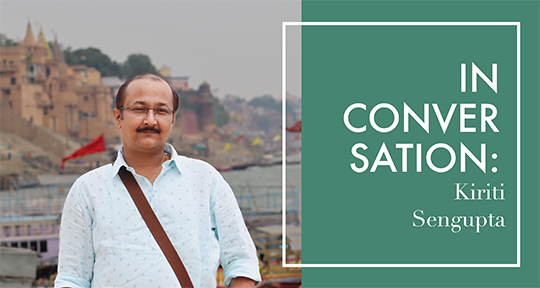If you’ve never felt literature’s somatic effects, perhaps you just haven’t encountered the right book—or been in the right place. In this following essay, Anna Mebel explores the perilous consequences of reading Jon Fosse on a plane, where the Norwegian author’s quieting haunting novella, A Shining, catalyzed a sudden contact with apparitions, anonymity, and death at thirty thousand feet up in the air. Where certain texts e may be escapist channels, others set us ever more firmly in our bodies.
I read Jon Fosse’s A Shining on the plane back to Houston after visiting my parents in Miami, having bought the book at the airport bookstore—a sleek black copy with gold branches on the cover that stood out among thrillers, romance novels, and self-help tomes. Why not a Nobel Prize winner, I thought, and a short book too—the perfect length for a three-hour flight and a better use of my time than a magazine I’d leave crumpled and half-read.
I’ve never been one to fear flying, though I’ve often thought about how an old poetry professor—now dead—had described the shape of the plane as a tomb, comparing the experience of flying to being buried alive. Even with the recent rash of freak aviation accidents (growing more frequent by the day during the Trump administration), I still comforted myself with the logic that the odds of anything catastrophic befalling me were tiny. I boarded my plane listening to ambient harp music, and when I got to my seat, I wedged A Shining into the metal contraption that passes for a seat pocket on a Spirit flight. READ MORE…




 This spirit of formal ambition is by no means limited to our Special Feature. After all, “as the reality of each time changes,” says
This spirit of formal ambition is by no means limited to our Special Feature. After all, “as the reality of each time changes,” says 
Blog Editors’ Highlights: Winter 2025
Reviewing the manifold interpretations and curiosities in our Winter 2025 issue.
In a new issue spanning thirty-two countries and twenty languages, the array of literary offers include textual experiments, ever-novel takes on the craft of translation, and profound works that relate to the present moment in both necessary and unexpected ways. Here, our blog editors point to the works that most moved them.
Introducing his translation of Franz Kafka’s The Trial in 2012, Breon Mitchell remarked that with every generation, there seems to be a need for a new translation of so-called classic works of literature. His iteration was radically adherent to the original manuscript of The Trial, which was diligently kept under lock and key until the mid-fifties; by then, it was discovered exactly to what extent Max Brod had rewritten and restructured the original looseleaf pages of Kafka’s original draft. It is clear from Mitchell’s note that he considers this edit, if not an offense to Kafka, an offense to the reader who has lost the opportunity to enact their own radical interpretation of the work: an interpretation that touched Mitchell so deeply, he then endeavored to recreate it for others.
In Asymptote’s Winter 2025 Issue, the (digital) pages are an array of surprising turns of phrase and intriguing structures—of literature that challenges what we believe to be literature, translations that challenge what we believe to be originality, and essays that challenge what we believe to be logic. I am always drawn to the latter: to criticism, and writing about writers. As such, this issue has been a treat.
With the hundredth anniversary of Kafka’s death just in the rearview and the hundredth anniversary of the publication of The Trial looming ever closer, the writer-turned-adjective has not escaped the interest of Asymptote contributors. Italian writer Giorgio Fontana, in Howard Curtis’s tight translation, holds a love for Kafka much like Breon Mitchell. In an excerpt from his book Kafka: A World of Truth, Fontana discusses how we, as readers, repossess the works of Kafka, molding them into something more simplistic or abstract than they are. In a convincing argument, he writes: “The defining characteristic of genius is . . . the possession of a secret that the poet has no ability to express.” READ MORE…
Contributors:- Bella Creel
, - Meghan Racklin
, - Xiao Yue Shan
; Languages: - French
, - German
, - Italian
, - Macedonian
, - Spanish
; Places: - Chile
, - France
, - Italy
, - Macedonia
, - Switzerland
, - Taiwan
, - Turkey
; Writers: - Agustín Fernández Mallo
, - Damion Searls
, - Elsa Gribinski
, - Giorgio Fontana
, - Lidija Dimkovska
, - Sedef Ecer
; Tags: - dystopian thinking
, - identity
, - interpretation
, - nationality
, - painting
, - political commentary
, - revolution
, - the Cypriot Question
, - the Macedonian Question
, - translation
, - visual art
, - Winter 2025 issue
, - world literature